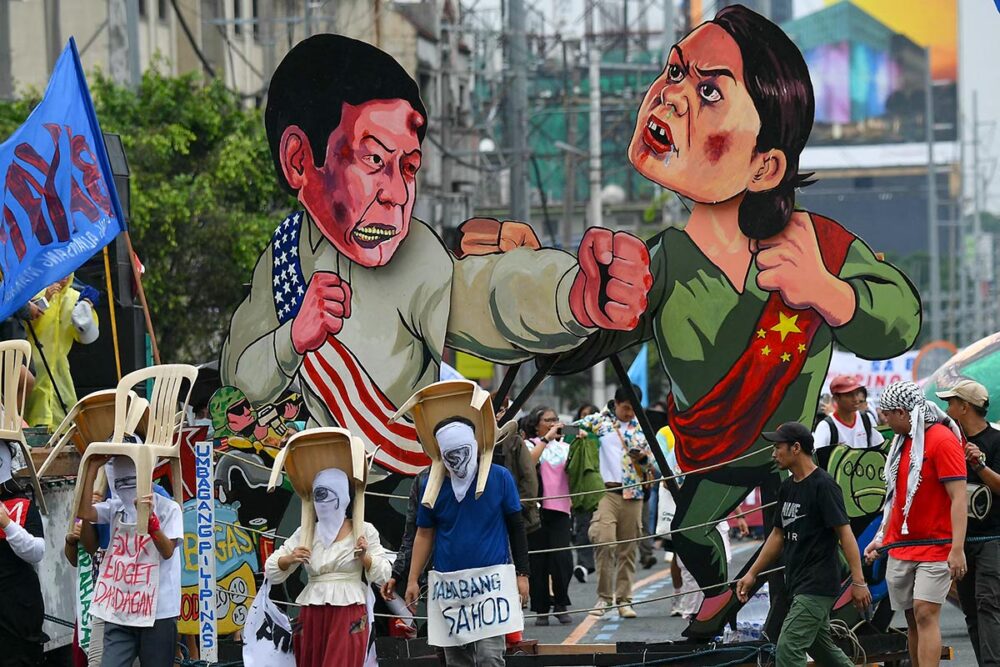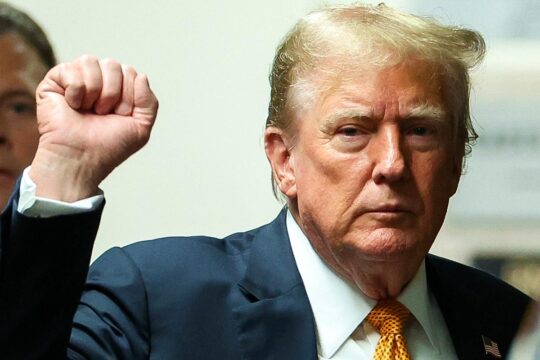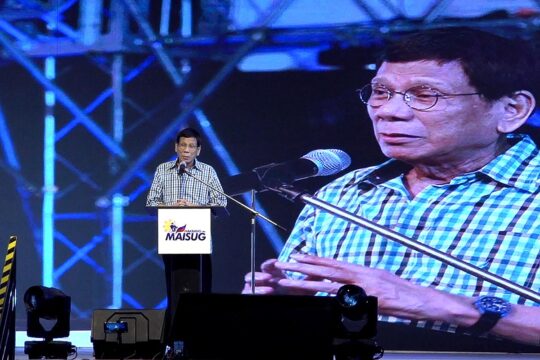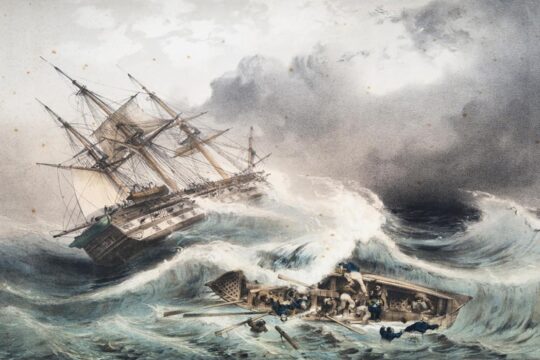Unless you follow Filipino politics or all the current 17 ongoing investigations by the International Criminal Court (ICC) you can be forgiven for missing this story. And it’s a good one. It tells us much about the interaction of politics with international law and the reliance of an ICC prosecution on the very people it is supposedly investigating. All casting a dark shadow on the ability of the court to do its job independently without politicisation and showing us just how political ICC investigations are.
In the Philippines, 2025 begins with incumbent President Ferdinand ‘Bongbong’ Marcos Jr (son of former dictator Ferdinand Marcos Sr, who ruled from1972-81) fighting an open battle of insults with his predecessor Rodrigo Duterte and his daughter Sara – who happens to be Bongbong’s very own vice president – for now.
Caught between these two warring clans is a stalled ICC investigation into Duterte’s drug war which is estimated to have led to the death of over 20,000 people. The ICC investigation now is used as a political football kicked between each clan as part of a quid pro quo battle for power and favour in return for protection from the ICC.
Duterte and Marcos Jr strike a deal
Duterte’s reign as president from 2016-2022 followed 22 years as mayor of Davao, a city in the Southern Philippines. And it was during his time as mayor of Davao that Duterte admittedly ran death squads – known as the DDS – the Davao Death Squad. They practiced summary executions of an estimated 1,040 people between 1998 and 2008. Provincial mayors in the Philippines are not the usual focus of 109-page reports by Human Rights Watch, so this should tell you a lot and “You can die anytime” - Death Squad Killings in Mindanao remains a high water mark of human rights investigative work.
So it’s not like Duterte didn’t have previous form when he was elected president with almost twice as many votes as the next candidate, nor did he run away from his reputation. In fact he campaigned on the promise of a drug war he would scale up from the mayor’s office in Davao to the president’s office in Manila. The scale of the suffering multiplied by the power of the presidency and the national scale. Duterte even brought trusted DDS lieutenants from Davao to Manila. Chief among them Ronald ‘Bato’ Dela Rosa who Duterte made Philippines National Police (PNP) chief in July 2016. Bato would oversee the drug war (known as Operation Tokhang) taking a prominent public role. And this was rewarded by electorate in 2019 when Bato won 19 million votes to be elected senator.
When Duterte’s term as president ended, the succession of Bongbong Marcos was far from certain, with daughter Sara Duterte, and son Paolo considering on following their father in the presidential palace. Bato also filled his candidacy for president before withdrawing it a month later when Sara filled her candidacy for vice president to run along side Bongbong. It is widely thought that a deal was brokered between the two dynasties that the Marcos family would take a turn in the 6-year presidential term with an understanding that the Duterte’s would be kept close, have influence and be next in-line in 2028.
Duterte’s daughter’s death threat
The ICC investigation was officially opened in 2021, more than two years after the withdrawal from the Court ordered by Duterte became effective. Until only recently Marcos has remained steadfast that the government will not cooperate with the ICC. Nobody expected him to turn on his predecessor and his VP’s father. However, across the 3 years of the Marcos presidency the relationship has gone from fractious to outright hostile.
Sara has not been able to garner the influence she wanted. VP in the Philippines is a largely ceremonial role that comes with little clout. She wanted to be defence minister, and Marcos was wise to deny her this important role while the country fights two insurgencies (communist and Islamist) and faces increasing pressure from China in the South China Sea over territorial disputes. Instead, Sara had to busy herself with Education Secretary. Even here she tried to militarise the role by bringing in compulsory military service for university students. Then came an ongoing inquiry into embezzling 500 million pesos [8,5 million US dollars] of ‘confidential funds’ and some dramatic confrontations at congressional hearings.
This came to head in November when Sara threatened President Marcos with assassination, saying that she has instructed an assassin to kill the president, his wife and the speaker of the House of Representatives if she were killed. Tensions have eased since then but this was no idle threat. The Duterte’s are no stranger to the work of assassins and violence themselves.
What witness protection?
Marcos’ stance on not cooperating with the ICC investigation threatened to soften during this period with Marcos saying he would no longer block it if Duterte wanted to be investigated which he had claimed in typical bellicose fashion in a senate hearing last October.
Beyond this ongoing and complex political backdrop, what hope is there for an investigation to materialise and lead to actual prosecution? Although Filipino lawyer Jude Sabio filed a case in April 2017 with the ICC, the Court’s investigation into the Drug War didn’t begin until 2021 and three years later has yet to publicly move beyond rather naïve appeals for witnesses. The ICC faces several significant, if not insurmountable hurdles.
Firstly, many of the murders were not even recorded as crimes at the time, let alone investigated, forensic evidence wasn’t obtained, recorded and stored. Indeed such was the culture of impunity that the blood of the victims and their bodies were washed away, evidence planted, leaving only victims’ families with suffering and no hope of recourse. There has been no domestic legal prosecution for the extra judicial killings.
Second, witnesses are not safe. Getting insiders in the National Police to come forward – as the ICC Prosecutor hopes – will be very hard, verging on reckless. They will need protection. Is the ICC offering this? The one person who has come forward – a former assassin from the DDS – has just had to flee the Philippines using fake ID after being in hiding and his testimony going nowhere beyond spectacle. There is no momentum domestically for a prosecution and as a result witnesses like him are in danger and have no support. How is the ICC going to change that? It is unclear that the ICC can protect people. It risks exposing vulnerable people to the endemic corruption that an ICC investigation won’t root out even if it succeeds with a showcase prosecution.
Not enough public support
Third, the people doing the killing are widely understood to have been the police, either in uniform in a shoot first, not worry about the consequences later policy, or ‘off-duty’ out of uniform vigilante style. The modus operandi being assassins riding pillion on motorcycle vanishing without much of a trace.
Fourth, governmental cooperation and corruption. Pull on one thread enough to build a case will expose the top-to-bottom scale of collusion and entrenched corruption inside the Philippines’ political apparatus that I have given you just a flavour of above. Many have moved on and up like Bato and hold the nation’s security offices head posts. Not only is their cooperation needed but prosecuting them would collapse the status quo and risk greater law and order breakdown. Many of those involved are bonded together over their crimes and that will require a greater force to break than the ICC wields.
Fifth is political reality. Sara Duterte is most likely to be the next president in 2028. The Duterte’s remain popular, the nation would not give Rodrigo up to the ICC. Of course, that is not to say that there are many that are appalled and want to see justice: rights groups have been shouting for anyone’s help since 2016 and in Davao a lot longer. But sadly, these voices are a political minority. Without the support of the population at large how realistic is it that an outside international body like the ICC can penetrate the dark underbelly of the Philippines?
Entrenched interests and political violence
Accountability for these crimes needs local buy in which now doesn’t exist as a coherent and resilient political movement. Ideally domestic measures would do this but the embattled judicial process in the Philippines has long collapsed under its own archaic bureaucracy that has become crippled by politicisation too. Maybe an outside force like the ICC is the only hope but even if the Marcos clan were to give up the Duterte’s the domestic backlash could be severe. These are both significant political forces with entrenched interests and a history of political violence. There is much that binds the warring bedfellows beyond just a marriage of political convenience.
Political dynasties in the Philippines like the Marcos and Duterte families are not to be seen as mere mob families. Their reach goes back into industry and commerce, deep into society and communities across the country, the Marcos’s to the North the Duterte’s to the South. Many millions rely on the systems these families have built and protected and there is much for many to lose by disruption. Disruption that is very likely to quickly become violent and involve the security apparatus that is now scarily straddled across both families.
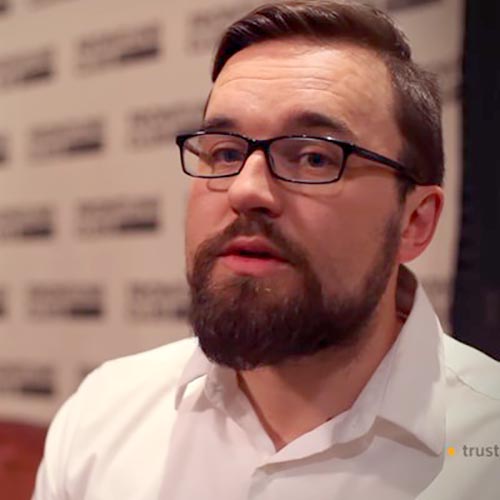
Dr Tom Smith is the Academic Director of the Royal Air Force College and an Associate Professor of International Relations at the University of Portsmouth, UK. He focuses on conflict and human rights in the Philippines and Southeast Asia. He has been a vocal critic of the Duterte regime and advised human rights groups in the region, working with civil society, UK government and overseas governments and NGOs.


